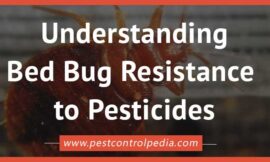Table of Contents
ToggleUnderstanding Bed Bug Infestations
Bed bugs, scientifically known as Cimex lectularius, are small, reddish-brown insects that feed on the blood of humans and animals. They are excellent hitchhikers and can easily infest homes by latching onto clothing, luggage, or furniture. Signs of a bed bug infestation include tiny blood stains on bedding, shed skins, and musty odor in the affected areas.
The Silent Stress of Bed Bug Infestations
While the physical discomfort caused by bed bug bites is well-known, the silent stress they bring can be equally debilitating. The psychological impact of knowing that your home is invaded by pests can lead to increased anxiety, depression, and sleep disturbances. The constant fear of being bitten during the night can result in insomnia and a decreased quality of life.
Financial Burden
Dealing with a bed bug infestation can also take a toll on your finances. The costs associated with professional extermination services, replacing infested furniture, and repairing property damage can add up quickly. Moreover, the stigma attached to having bed bugs may deter individuals from seeking help, leading to prolonged infestations and higher expenses.
Social Stigma
Beyond the financial burden, there's also a social stigma associated with bed bug infestations. Many people feel ashamed or embarrassed to admit that they have bed bugs, fearing judgment from friends, family, and neighbors. This fear of social ostracism can lead to isolation and further exacerbate the psychological impact of the infestation.
Health Risks
In addition to the psychological and financial stress, bed bug infestations also pose health risks. Some individuals may experience allergic reactions to bed bug bites, ranging from mild itching to severe allergic dermatitis. Moreover, scratching the bites can lead to secondary infections, further complicating the situation.
DIY vs. Professional Extermination
When facing a bed bug infestation, homeowners often debate whether to tackle the problem themselves or hire professional exterminators. While DIY methods may seem cost-effective initially, they are often ineffective in eliminating the entire infestation. Professional exterminators have the expertise and tools to locate and eradicate bed bugs effectively, saving time and preventing reinfestation.
Preventive Measures
Preventing bed bug infestations is key to avoiding the silent stress they bring. Regularly inspecting your home for signs of bed bugs, avoiding second-hand furniture, and taking precautions while traveling can help minimize the risk of infestation. Additionally, sealing cracks and crevices, using mattress encasements, and maintaining a clutter-free environment can make your home less hospitable to bed bugs.
Seeking Support
If you're dealing with a bed bug infestation, it's essential to seek support from friends, family, or professionals. Don't hesitate to reach out for help, as prolonged infestations can worsen the psychological and financial burden. There are numerous resources available, including support groups, hotlines, and professional extermination services, to assist you in overcoming the challenges posed by bed bugs.
Conclusion
Bed bug infestations go beyond the physical discomfort of their bites; they can also cause significant silent stress. Understanding the psychological, financial, and social impact of bed bugs is crucial for effectively addressing the problem. By taking proactive preventive measures and seeking support when needed, you can mitigate the silent stress of bed bug infestations and reclaim control of your home and well-being.
FAQs
How do I know if I have a bed bug infestation?
- Look out for signs such as tiny blood stains on bedding, shed skins, and a musty odor in infested areas.
Can bed bugs transmit diseases?
- While bed bugs are not known to transmit diseases directly, their bites can lead to secondary infections in some cases.
Are DIY bed bug treatments effective?
- DIY treatments may offer temporary relief but are often ineffective in eliminating the entire infestation. Professional extermination is recommended for lasting results.
How long does it take to get rid of bed bugs?
- The time it takes to eradicate bed bugs depends on the extent of the infestation and the treatment method used. Professional extermination may take several weeks to ensure complete eradication.
Can I prevent bed bug infestations when traveling?
- Yes, you can take precautions such as inspecting hotel rooms for signs of bed bugs, keeping luggage off the floor, and washing clothes in hot water after returning home.

